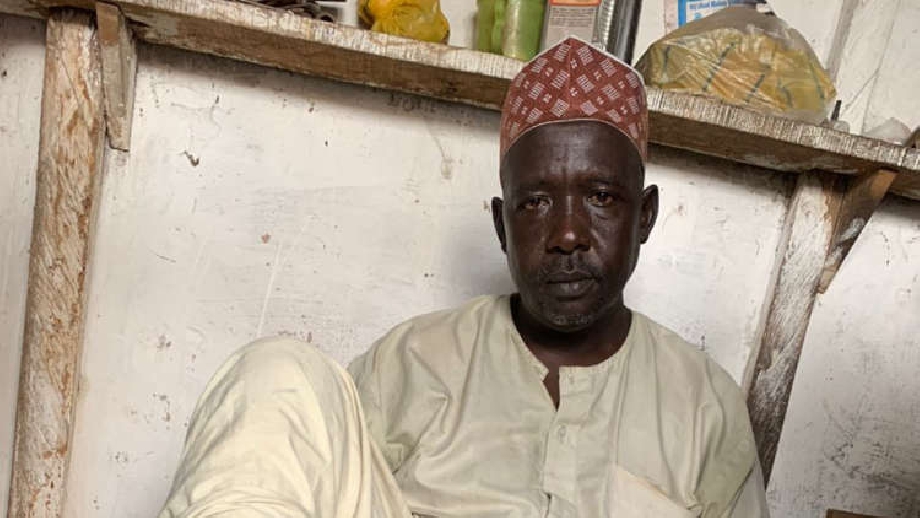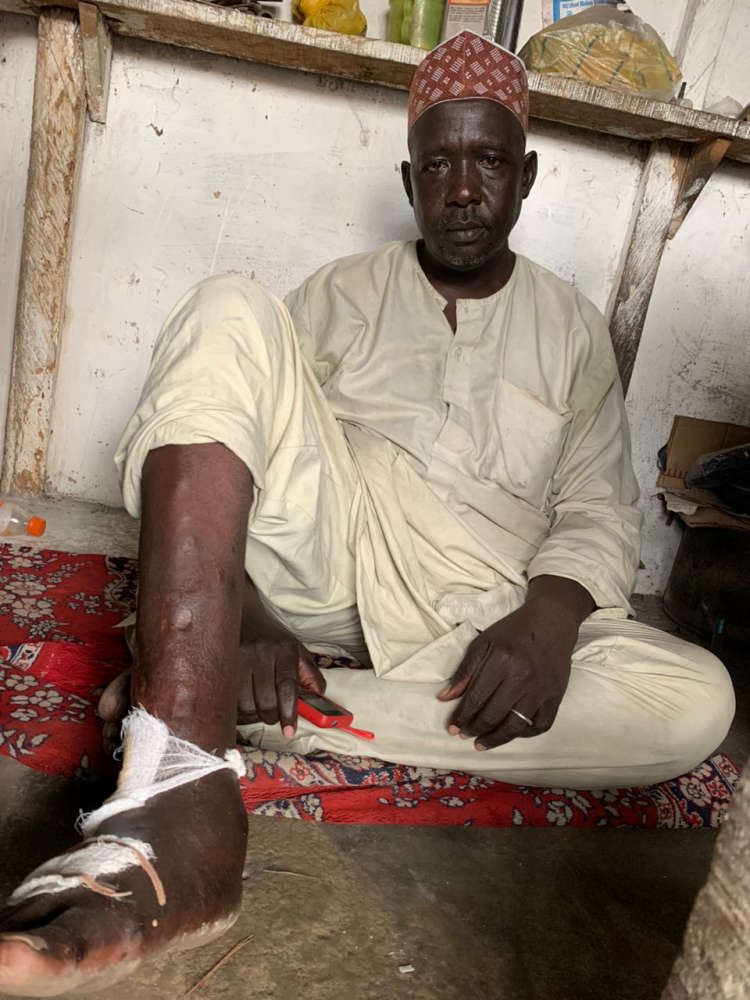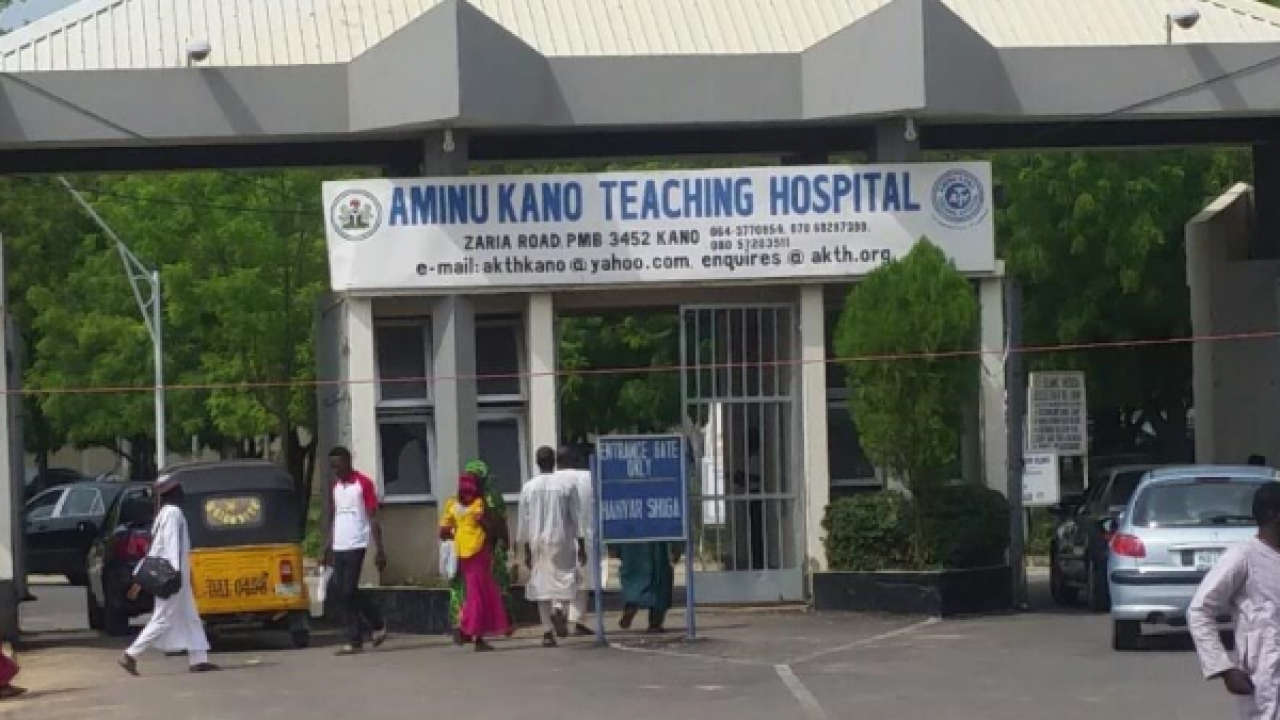
Ibrahim Aliyu, a trader in Kofar Ruwa Market was walking barefoot after a heavy downpour in August, with a huge bandage on his right foot.
Deeply concerned by his condition, I took a seat beside him in his shop.
There, Aliyu revealed that he got the wound over 15 years ago when hot liquid sugar used in making local candy spilled on his leg.
“I got the wound about 15 years ago when I got burnt by a hot liquid sugar used in making a local candy,” he said.
“I treated it, but it started bleeding months later. I took myself to a herbalist and he said I had cancer.”
After years of consulting herbalists, Aliyu was taken to a leprosy hospital where he was diagnosed with diabetes.
Since then, he has spent millions treating the wound that has refused to heal.

“After several years of failed attempts of treating cancer, in 2015 I was taken to Bela Leprosy Hospital and the doctor said it was diabetes.
“I have spent over N3 million treating this leg, unfortunately, the wound is yet to heal”, he said.”
Held Down by Diabetes
More than 100 diabetes patients, young and old usually queue at the dietician’s office at the Aminu Kano Teaching Hospital (AKTH) Specialty Clinic, eagerly waiting for their turn.
One of the patients, Usman Haruna said he has been managing diabetes since 2016.
Haruna revealed that he’s usually helpless and could neither stand nor walk whenever his sugar level is high.
“I have been managing diabetes for over six years now after I was diagnosed in 2016,” he told me.
“Currently, I don’t have a job, so if I have money, I eat what the doctor recommends, but if I don’t, I just eat anything I get.
“Whenever I don’t take medicine, I pee 10 times in less than three hours.
“When the sickness starts, I will not be able to stand or move. It is that bad,” he added.
One in 10 Adults Live with Diabetes
These stories tell of a disturbing prevalence of diabetes in Kano which adequately captures the situation across the globe as the World Health Organization (WHO) says 537 million adults (1 in 10) were living with the disease in 2021.
According to the data, 541 million adults are at increased risk of developing Type 2 Diabetes, while more than 1.2 million children and adolescents (0-19 years) live with Type 1 Diabetes.
In Nigeria alone, six million people live with the ailment.
Unfortunately, two-thirds of diabetes cases in the country remain undiagnosed.
Early Diagnoses & Treatment Prevents Complications
Persons with a family history of diabetes are at great risk of having the disease.
Other leading causes include being black, overweight, and having poor hygiene.
A Consultant Physician and Endocrinologist at Aminu Kano Teaching Hospital, Dr. Mansur Ramalan laments the delay of patients in seeking medical attention, just as he revealed that diabetes causes blindness, kidney failure, heart attack, stroke, and lower limb amputation.

“Sometimes we experience patients presenting late to the hospital,” the doctor said.
“They wait until they have complications before they come to the hospital.
“This is very bad because when they come late we have challenges in managing them.”
Preventive Measures & Diet
Dr. Ramalan advises diabetes patients to avoid alcohol and carbonated drinks.
“It is important that people conduct an annual exam to know their level of sugar, eat healthily, and exercise regularly.
“They must also avoid unhealthy lifestyles like taking alcohol and carbonated drinks,” he said.
According to WHO, the number of people living with diabetes is expected to rise from 537 million to 643 million by 2030 and 783 million by 2045.
Hence, personal citizens’ commitment and holistic strategies to halt the prevalence are paramount for a healthy and better world.


